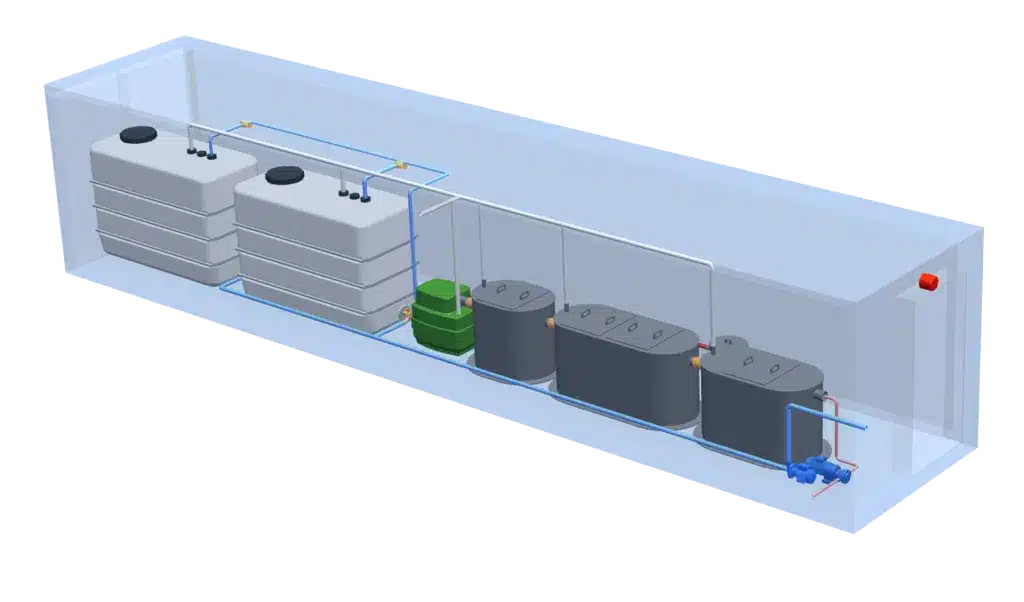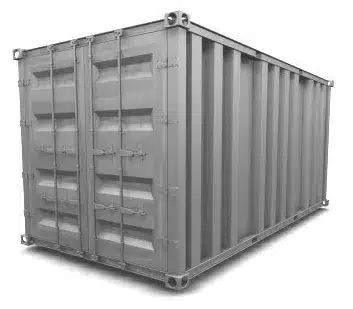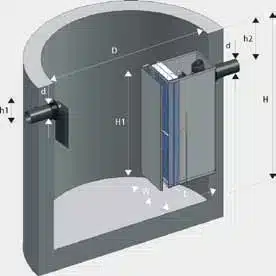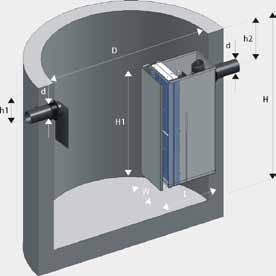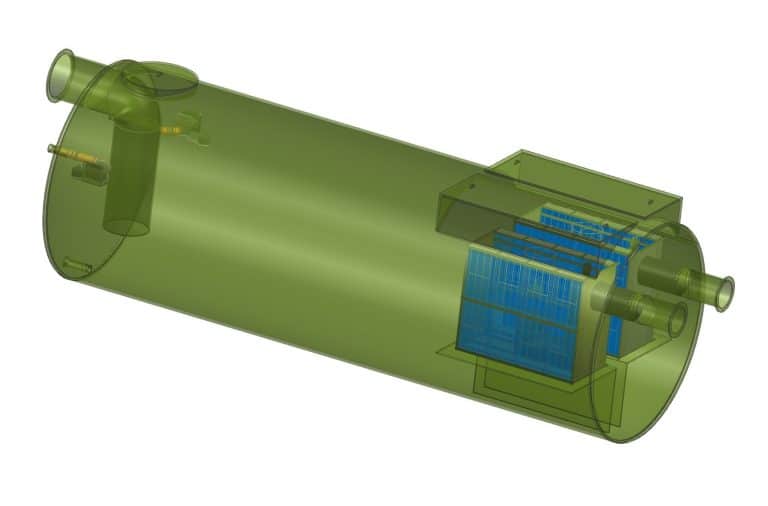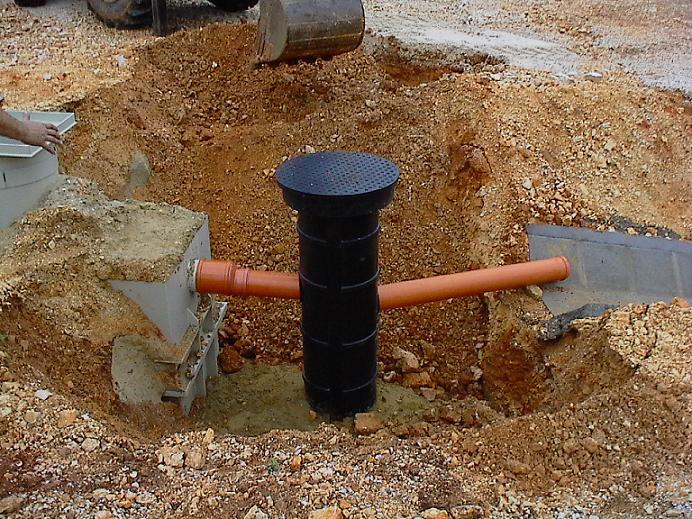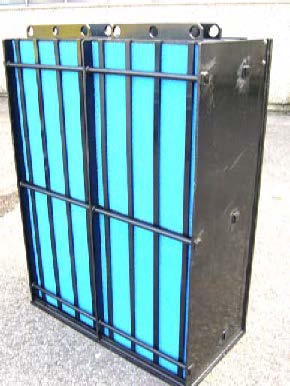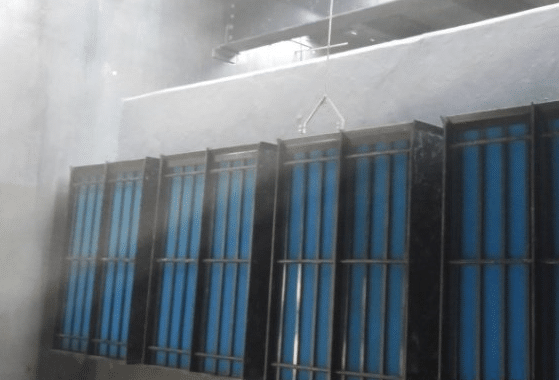Do you know that North Carolina has strict rules for industrial wastewater? Oil Water Separator Tanks North Carolina are key to following these rules. They are vital for treating industrial wastewater, managing stormwater, and keeping the environment safe.
In North Carolina, many businesses use oil water separators. They help protect local water by removing oils and pollutants from wastewater. This ensures clean water goes back into the environment.
Freytech Inc. offers top-notch separator systems. Their technology can remove hydrocarbons like motor oil, diesel, and gasoline to just 0.1 PPM. This sets a high standard for protecting the environment and managing stormwater.
Key Takeaways
- Oil water separators are vital for environmental compliance in North Carolina
- These systems are crucial for industrial wastewater treatment and stormwater management
- Freytech Inc. provides high-efficiency separators for various hydrocarbons
- Proper oil water separation protects local waterways from pollution
- Advanced systems can achieve separation efficiency as low as 0.1 PPM
Introduction to Oil Water Separator Tanks
Oil water separator tanks are key in North Carolina’s fight against pollution. They help keep our water safe by stopping harmful substances from getting in. Let’s see what these tanks do and why they matter.
Definition and Purpose
These tanks are made to take out oils and solids from wastewater. They let oil float up and solids sink, leaving clean water in the middle. This is crucial for keeping our water safe and helps businesses follow pollution prevention plans.
Common Applications in North Carolina
In North Carolina, these tanks are used a lot. You’ll see them at car washes, places that fix equipment, and industrial areas. They’re a must-have for managing dangerous runoff, keeping our environment safe.
Environmental Importance
Oil water separator tanks are very important for the environment. They stop oils and solids from going into sewers and waterways. This keeps our ecosystems safe. They’re a key part of plans to prevent pollution, making sure our water stays clean for the future.
Types of Oil Water Separator Tanks Available in North Carolina
North Carolina has many oil water separator tanks for different needs. These tanks are key in treating wastewater across the state. Let’s look at the main types you can find.
Above Ground Separators
Above ground separators are easy to get to and maintain. They have single wall, double wall, and fire-protected options. These tanks work well for places with little space or where checks are often needed.
Underground Storage Tanks
Underground storage tanks are a top pick for many businesses in North Carolina. They meet UL-58 and UL-1746 standards for safety and trustworthiness. These tanks are great for spots where space is tight or looks matter.
Custom-Sized Solutions
For special needs, custom tanks are an option. They can hold from 1,000 to 20,000 gallons and support H/20 and HS/20 load ratings. These tanks are made for certain uses like storing generators, chemicals, or water. They follow standards like UL-142, UL-2085, API-650, and AWWA D-100.
Choosing the right oil water separator tank depends on your specific needs. Think about space, size, and local rules when deciding. With many options in North Carolina, you’ll find one that meets your wastewater treatment needs.
How Oil Water Separator Tanks Work
Oil Water Separator Tanks in North Carolina use cutting-edge tech to clean industrial wastewater. They use gravity and coalescing methods to remove oil from water. When dirty water goes into the tank, it stays there for a bit.
Then, oil floats up because it’s less dense. At the same time, solids fall to the bottom. The clean water then goes through special parts like baffles and tees to make sure it’s really clean. This method is great for getting rid of industrial wastewater.
Some top-notch systems in North Carolina also have better coalescing tech. This lets them take out free oil and even tiny bits of emulsified oil. They use special materials that pull oil particles together, making them easier to separate from water.
Some Oil Water Separator Tanks in North Carolina have a special spiral design. This design spreads out oil particles faster, making the separation better. With these advanced tech, North Carolina’s industrial places can clean their wastewater well and follow environmental laws.
Oil Water Separator Tanks North Carolina: Regulatory Compliance
North Carolina has strict rules for oil water separators to protect the environment. Businesses must follow state and federal laws to stay legal. It’s important to know these rules to avoid fines.
State-Specific Regulations
North Carolina has its own rules for oil water separators. These include rules for installation, operation, and upkeep. Companies need permits and must pass regular checks to meet these standards.
Federal Standards for Hydrocarbon Discharge
Federal laws limit hydrocarbon discharge to 10 parts per million. Freytech Inc. offers systems that achieve 5 PPM separation efficiency. This level of purity helps businesses meet and beat legal standards.
Importance of Proper Installation and Maintenance
Setting up and maintaining oil water separators correctly is crucial. It’s important to pump and transport harmful materials to treatment plants. Tanks must meet standards like NFPA-30 and NFPA-22 for chemical and water storage. Good maintenance keeps businesses in line with laws and protects the environment.
Benefits of Freytech Inc.’s Oil Water Separator Systems
Freytech Inc. is a leader in Oil Water Separator Tanks in North Carolina. Their systems use the latest coalescing technology for top-notch separation. They can remove oil particles as small as 0.1 parts per million, meeting or beating federal clean water standards.
Freytech’s separators are versatile and effective. They can separate different hydrocarbons like motor oil, diesel, gasoline, and jet fuel. This makes them perfect for many industries in North Carolina, from car shops to airports.
Freytech’s systems are key to managing stormwater in North Carolina. They ensure rainwater is clean before it reaches local waterways. This keeps North Carolina’s ecosystems safe and helps companies avoid big fines.
These separators are also very durable. They need little upkeep, which saves businesses time and money. With Freytech’s Oil Water Separator Tanks, North Carolina companies can trust they’re using top-notch, eco-friendly wastewater solutions.
Choosing the Right Oil Water Separator for Your Facility
Choosing the right oil water separator is key for effective wastewater treatment. You need to think about several important factors when making this choice.
Factors to Consider
Look at your site’s conditions and what you need to do. Think about the contaminants you’ll face and how much wastewater you’ll have. If you’re dealing with a lot of oily water, you’ll need strong spill containment equipment.
Flow Rate Capabilities
Flow rate is a big deal when picking a separator. Most can handle 1 to 100 gallons per minute (GPM). If you’re dealing with a lot of wastewater, you might need a custom solution. Make sure your system can handle the highest flow rates for the best performance.
Material Options: Steel vs. Stainless Steel
The material you choose affects how long it lasts and how well it works. Painted steel is a budget-friendly option for many places. Stainless steel costs more but doesn’t rust. Some top-notch systems use heavy-gauge 304 stainless steel with adjustable skimmers, perfect for tough industrial settings.
If you’re handling a lot of solids, look for systems with slant rib clarification plates. These help separate better in tough conditions. The right oil water separator is crucial for following the rules and keeping the environment safe.
Maintenance and Best Practices for Oil Water Separators
Keeping your oil water separator in top shape is key to its performance. Regular maintenance stops stormwater pollution and keeps your system running smoothly. Clean the coalescing media often and remove built-up oil and solids. Check all parts regularly to catch any issues early.
Smart practices can boost your separator’s efficiency. Use bag filtration to catch more contaminants. Install level controls to manage fluid levels. Add sight tube assemblies to easily monitor your system. Adjustable oil skimmers work well in different site conditions, improving separation.
Don’t forget about proper disposal. Pump out harmful materials regularly and send them to treatment facilities. This step is crucial for following environmental rules and avoiding fines. By sticking to these guidelines, you’ll keep your oil water separator working well and help protect the environment.
These separators are crucial in storm water systems. They process runoff to meet the US EPA’s Clean Water Act standards. With effective oily water treatment, facilities protect the environment and dodge big fines.

